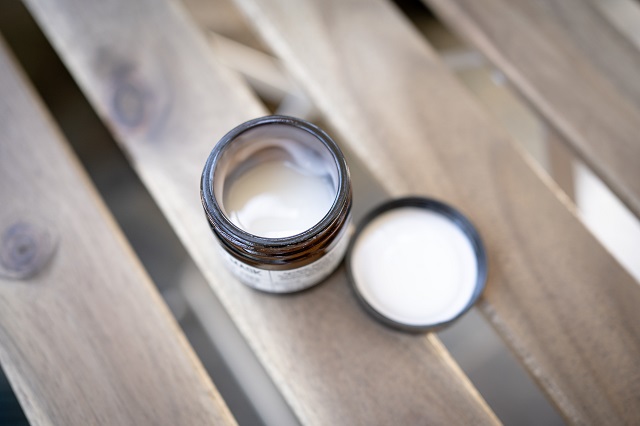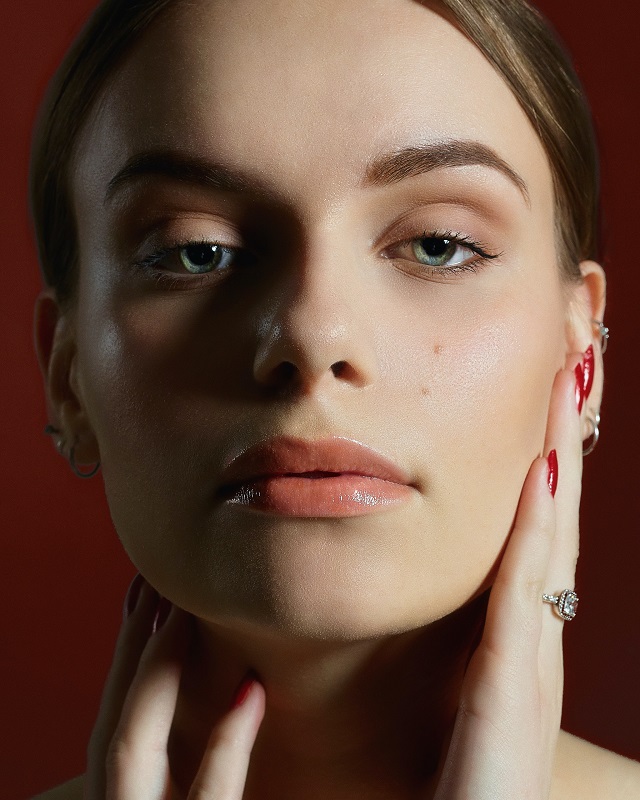Choose the Right Moisturizer Based on Your Skin Type
🖥️
Choose the Right Moisturizer Based on Your Skin Type
There are literally thousands of moisturizers on the market, and your local pharmacy or grocery store can pick up dozens, if not hundreds, of them. Choosing the wrong moisturizer can lead to excess oil production, dry itchy skin, and other problems—while choosing the right moisturizer can leave skin healthy, hydrated, and looking plump and smooth.
Choosing an antiaging moisturizer is not a one-size-fits-all process, and everyone needs to consider their skin type as well as their climate and season.

Photo by Sora Shimazaki from Pexels
To help demystify, we’ll explain how to decipher your skin type, what ingredients to look for in your moisturizer, and which type of moisturizer is right for which skin type.
Know your skin type
The first key to choosing the right moisturizer for your skin is knowing your skin type. Oily skin types often require a different moisturizer than dry skin types, and sensitive skin types need to be extra careful with ingredients that may irritate the face.
If you’re not sure about your skin type, that’s totally okay! Thankfully, you can determine your skin type with a simple test. First, wash your face thoroughly with a gentle foaming cleanser. When finished, pat face dry and leave on for at least 30 minutes.
You don’t want to rub any product on your skin, this will affect the results and may make your face look like a different skin type than it actually is.
When the half hour is up, go back to the bathroom and observe how your face looks. Dry skin types will feel dry and tight while oily skin types will look and feel shiny.
If you have some dry patches and some oily patches, you almost certainly have combination skin, while patches with sensitive skin types can look red or irritated. If none of these descriptors apply to you, your skin may be normal.
Know Moisturizer Types
Moisturizers come in many different textures and weights to suit specific skin types and seasons. Creams are the heaviest and are usually the go-to skincare for dry skin, especially in winter.
The thickness of the lotion is in the middle, suitable for all skin types and seasons. Finally, gel moisturizers are the lightest in weight and are a top choice for oily skin types, especially in summer.
Combination skin types may want to get two different moisturizers — a gel for dry patches on the face and a cream for oily patches on the face. They also work equally well with a medium-textured lotion. If you’re one of the lucky ones with normal skin, you can use pretty much any moisturizer you want!
As we just pointed out, most people like to change their moisturizer according to the seasons. For example, someone with oily skin might use a gel moisturizer in the summer and a lotion in the winter, while someone with dry skin might use a lotion in the summer and a face cream in the winter.
Some people also like to use two different moisturizers during the day—one lighter in the morning and one heavier in the evening. It depends on personal preference as well as the climate where you live.

Photo by Alexandra Tran on Unsplash
Choose the Right Moisturizer for Your Skin Type
In addition to looking for a specific texture when choosing a moisturizer for your skin type, you’ll want to read the ingredient list carefully. The weight of your moisturizer is important to your skin type, but it’s only part of the story.
There are three ingredients to consider when choosing a moisturizer: oils, humectants, and occlusives. The oil helps replenish the skin’s natural sebum production, nourishing your skin.
Humectants help draw moisture from the surrounding air into the skin, leaving it looking plump and hydrated. Occlusives, such as petroleum jelly, sit on the surface of the skin and form a physical barrier that keeps water and oil from leaving the skin.
1. Oil
Dry skin often benefits from an oil-based moisturizer because their skin doesn’t usually produce enough sebum on its own.
However, the same moisturizer may cause glowing skin in people with clogged pores, acne, and oily skin that produces excess sebum. People with oily and combination skin should avoid moisturizers that contain oils.
2. Moisturizer
Almost all skin types can benefit from some level of moisturizer because excess moisture in the skin does not clog pores like excess oil does. Products for dry skin tend to contain more moisturizers than those for oily skin, but most people can use these ingredients without issue.
Having said that, people who live in extremely dry climates should be careful with moisturizers as there is often more moisture in their skin than in the air, which means the moisturizer will draw moisture from your face!
3. Occlusion
Occluders are heavy-duty moisturizers and are usually only needed for very dry skin types and/or in winter. Using too much of an occlusive ingredient can lead to clogged pores and acne breakouts because it seals the pores.
It can also cause irritation as it causes any treatment serum applied beneath it to penetrate deeper into the skin, so sensitive skin types should be especially wary of these ingredients.

Photo by Oliver Johnson on Unsplash
Since moisturizer is such a fundamental part of your skincare routine, we want to hear about your experience finding the perfect moisturizer for your skin type! Do you change your moisturizer seasonally? Do you use two different moisturizers each day, or just one? Are you still looking for the perfect moisturizer for your skin type? Let us know in the comments!
Keep it Artkraft
Check more articles in our categories DIY Home & DIY Projects & Tips & Crafts .
Thanks for visiting we hope our article Choose the Right Moisturizer Based on Your Skin Type
, don’t forget to share the article on Facebook, instagram and whatsapp with the hashtag ☑️ #Choose #Moisturizer #Based #Skin #Type ☑️!



Comments are closed, but trackbacks and pingbacks are open.